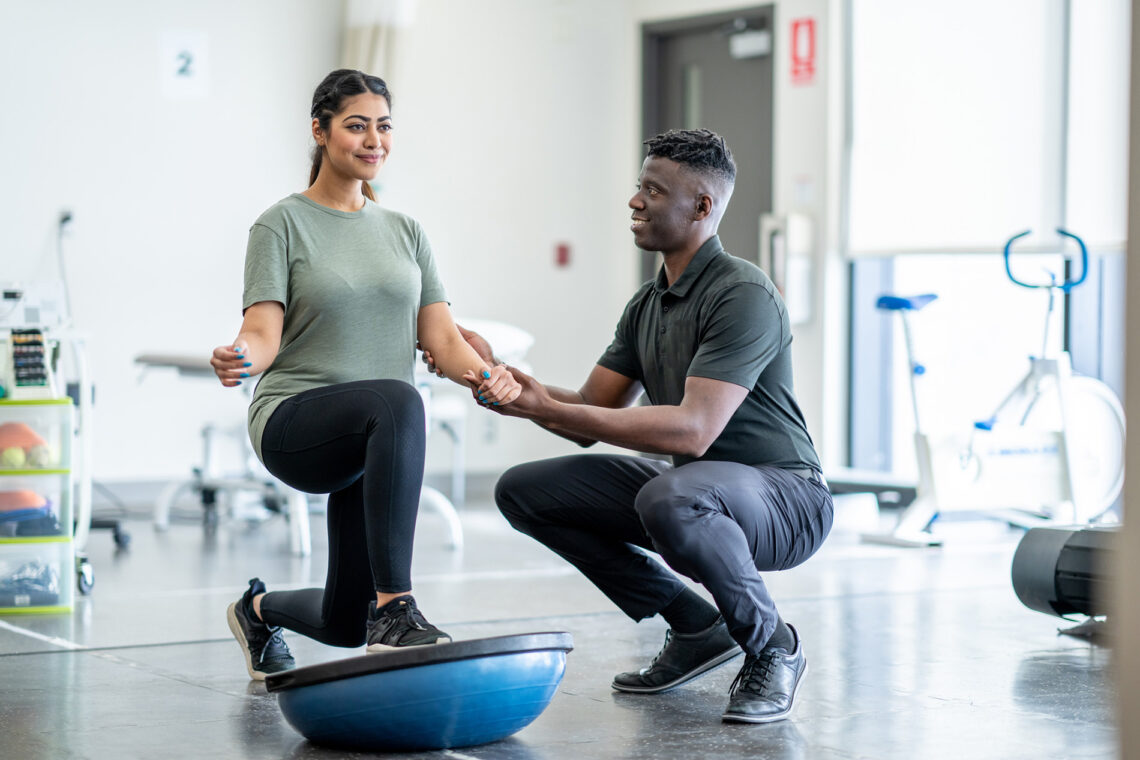Relied On Physical Therapist Roanoke: Personalized Look After Your Wellness Trip
Relied On Physical Therapist Roanoke: Personalized Look After Your Wellness Trip
Blog Article
How Physiotherapists Aid in Injury Rehab
Physical therapists play an important function in injury rehab, utilizing their competence to assist clients in their healing journey. The preliminary action entails assessing the nature and extent of the injury, which permits the physical specialist to develop a personalized treatment strategy customized to the client's specific needs. Furthermore, physical specialists offer education and learning on injury avoidance and self-management, empowering clients to take an active function in their rehab procedure.
Analyzing the Injury and Developing a Treatment Strategy
To precisely assess an injury and create an efficient treatment strategy, physical therapists systematically assess the level of the injury and its impact on the person's practical capacities. This analysis process is vital as it permits the physical specialist to collect unbiased information and info about the injury, enabling them to make informed choices concerning the suitable therapy interventions.
Throughout the assessment, physical therapists make use of a selection of methods and tools to collect details regarding the injury. They may carry out physical exams to analyze the variety of motion, toughness, and adaptability of the damaged area. They may also make use of specialized tests to review the individual's equilibrium, proprioception, and sychronisation. Furthermore, physical specialists might examine clinical records, analysis imaging reports, and various other appropriate documents to acquire a comprehensive understanding of the injury.
When the analysis is total, physiotherapists use the gathered information to create a customized treatment prepare for the patient. This strategy may consist of therapeutic exercises, manual treatment strategies, methods such as warm or cold treatment, and education and learning on injury avoidance and self-management strategies. The treatment plan is tailored to attend to the certain requirements and goals of the person, aiming to recover their functional capabilities and improve their overall high quality of life.
Using Hands-on Therapy Techniques
Physiotherapists use handbook therapy techniques to address the certain requirements and goals of hurt individuals, improving the efficiency of their therapy plans. Hand-operated therapy involves hands-on strategies that intend to boost movement, decrease pain, and advertise healing. These methods are based on a comprehensive understanding of makeup, physiology, and biomechanics, enabling specialists to target particular areas of the body with accuracy.
One generally used manual treatment method is joint mobilization. This method involves the proficient application of pressure to a joint, intending to recover its regular series of motion. By gently activating the joint, physiotherapists can minimize rigidity, improve flexibility, and minimize discomfort.
Soft tissue mobilization is another hand-operated treatment technique often made use of by physiotherapists. This method entails applying stress and activity to muscular tissues, ligaments, tendons, and various other soft cells to improve blood circulation, decrease muscle mass tension, and promote healing.
In addition, hand-operated therapy strategies such as massage therapy and stretching can help kick back muscular tissues, enhance versatility, and enhance general feature (physical therapy Roanoke). These methods are typically integrated with restorative workouts and various other therapy modalities to attain ideal results
Designing and Supervising Personalized Exercise Programs
Building upon the hand-operated therapy methods talked about previously, physiotherapists utilize their knowledge to design and monitor customized exercise programs for damaged people. These exercise programs are tailored to the certain requirements and capacities of each individual, considering their injury, case history, and overall goals for rehabilitation.
The initial step in designing a customized exercise program is to conduct a detailed assessment of the patient's problem. Physiotherapists will examine the client's strength, adaptability, variety of activity, and functional capacities. This evaluation helps them look at here now identify any type of areas of weak point or discrepancy that require to be addressed through targeted workouts.
When the assessment is total, the physical therapist will certainly develop a workout program that includes a range of workouts targeting different muscle groups and activity patterns. These exercises may consist of extending, reinforcing, equilibrium training, and cardio activities. The therapist will certainly additionally consider the person's preferences, lifestyle, and offered sources when making the program.
When the workout program is made, the physical specialist will lead the patient through each exercise, guaranteeing proper kind and strategy. They will certainly supply guidance and support, making modifications as required to make certain the workouts are challenging however not also arduous. The therapist will certainly additionally track the client's development and make adjustments to the program as the individual's abilities improve.
Providing Education on Injury Prevention and Self-management
In addition, physical specialists inform damaged people on injury prevention and self-management techniques. By offering education and learning on injury prevention, physical therapists empower individuals with the understanding and tools needed to reduce the danger of re-injury.

Furthermore, physical specialists enlighten individuals on the value of adherence to their treatment strategy. They clarify the reasons behind each treatment and the expected end results, guaranteeing that individuals recognize the purpose and benefits of their therapy. By encouraging patients with this knowledge, physical therapists motivate active participation in their own healing process, cultivating a feeling of possession and responsibility for their health.
Surveillance Progress and Adjusting Therapy as Needed

Physical pop over to this web-site specialists use various approaches to keep an eye on progress. They analyze the individual's array of movement, toughness, adaptability, and total practical capacities. They may also make use of specialized tests and dimensions to track improvements and recognize locations that need further attention.
By carefully keeping track of the progress, physical specialists can determine any kind of prospective barricades or challenges that might develop during the rehabilitation procedure. This allows them to make timely changes to the therapy strategy, ensuring that the treatment remains pertinent and effective to the individual's demands.
Modifications to the therapy plan might consist of modifying exercises, lowering the strength or boosting of treatment, or presenting brand-new techniques or modalities to resolve specific locations of concern. The goal is to optimize the rehab procedure and assist in a quicker and much more full healing for the client.
Along with keeping track of development and adjusting therapy, physical therapists also offer ongoing education and learning and support to their clients. This assists them understand their problem better, promotes self-management, and encourages them to proactively take part in their very own recovery.
Conclusion
To conclude, physiotherapists play a critical function in injury recovery. They examine injuries, establish therapy strategies, utilize hand-operated therapy strategies, style tailored exercise programs, offer education on injury avoidance and self-management, and monitor progress. Through their knowledge and support, physical specialists assist individuals recover from injuries and regain optimal function and movement.

Report this page